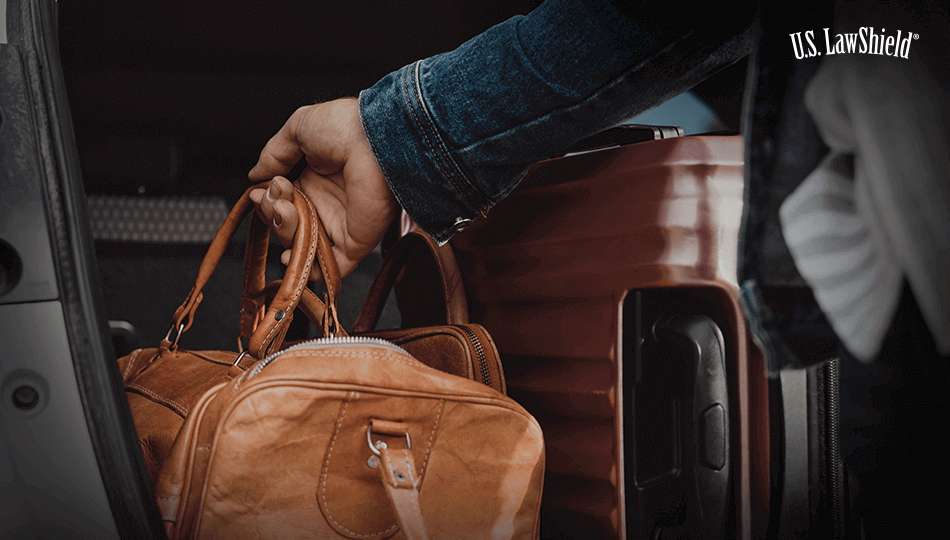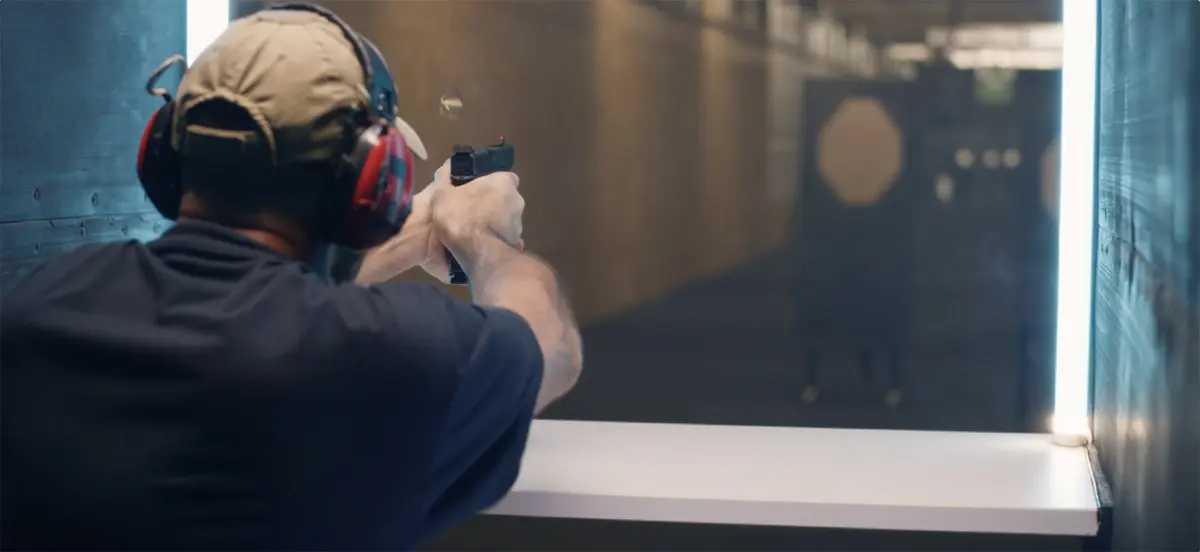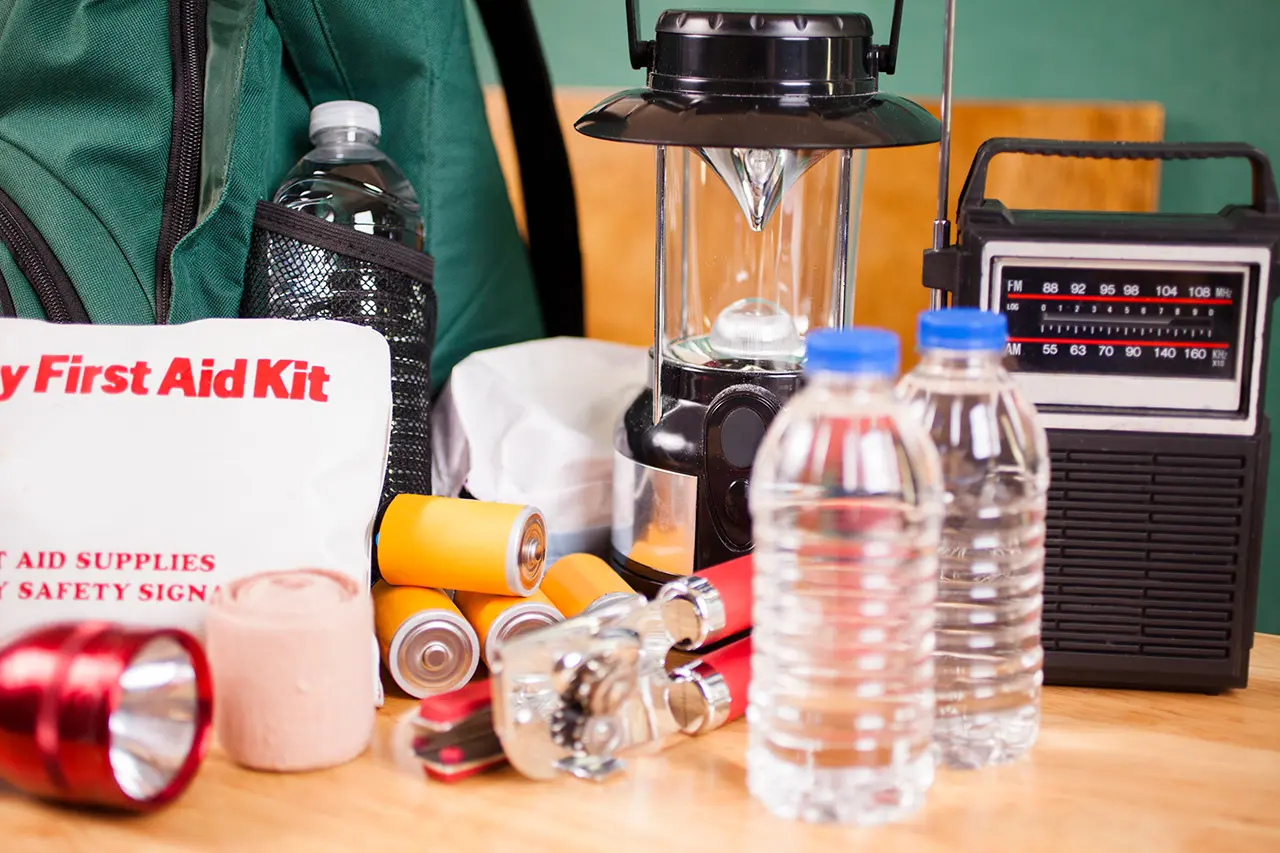
Traveling across the country by car can be an enriching experience that introduces you to new and exciting places. But choosing to transport a firearm, and the ammunition that goes with it, while you seek adventure on the open road can lead to trouble if you’re not careful. While you may have at least a basic understanding of what’s legal in the state you live in and hopefully the same level of understanding of the law in the state you’re going to, there’s another important factor to consider: Do you know the firearms laws in every state you’ll be driving through?
Know the law before transporting firearms across state lines
Knowing the law before you do anything that has the potential to land you in legal trouble is always important. How exactly should you go about doing your research though? While some people might suggest you look things up online, keep in mind some sources may be more trustworthy than others. Even if you find a good source for information online, firearms laws are constantly changing. Information that may have been accurate at the time it was published can be rendered useless if the laws change. One option is to check the official government webpage of any state that you plan on traveling to or through. However, some laws are confusing, and unless you have a legal background, certain laws at the state level can be difficult for the layperson to interpret.
To assist you with this issue, U.S. LawShield® members have non-emergency access to Independent Program Attorneys throughout the country. U.S. LawShield members who take advantage of the benefits that their membership provides can take the guesswork of out-of-state gun laws and trip-planning simply by asking an attorney licensed in the state(s) they plan on transporting a firearm or ammunition through. Not a member yet? U.S. LawShield even provides non-members with a free travel guide.
The law designed to protect you while transporting a firearm on vacation
The Firearms Owners Protection Act (FOPA) is a federal law that has a “Safe Passage” provision that specifically addresses how you can legally transport a firearm or ammunition through states that may not have laws that are friendly to gun owners. The Safe Passage provision of FOPA, also known as 18 U.S.C. § 926A, says that:
Notwithstanding any other provision of any law or any rule or regulation of a State or any political subdivision thereof, any person who is not otherwise prohibited by this chapter from transporting, shipping, or receiving a firearm shall be entitled to transport a firearm for any lawful purpose from any place where he may lawfully possess and carry such firearm to any other place where he may lawfully possess and carry such firearm if, during such transportation the firearm is unloaded, and neither the firearm nor any ammunition being transported is readily accessible or is directly accessible from the passenger compartment of such transporting vehicle: Provided, That in the case of a vehicle without a compartment separate from the driver’s compartment the firearm or ammunition shall be contained in a locked container other than the glove compartment or console.
What does that actually mean for you? There are three requirements for claiming Safe Passage protection under FOPA:
- First, every single firearm and piece of ammunition you have with you needs to be legal for you to possess in the state that you’re traveling from and the state you’re traveling If your final destination is a state where the items in your possession are illegal, then don’t bring those items with you.
- Second, whether you’re transporting a firearm across state lines, ammunition across state lines, or both, everything needs to be kept unloaded and separate from the passenger compartment of your vehicle. This means that you can’t just lock things up in your glovebox or center console. If you drive a vehicle that doesn’t have a trunk, you’re going to need to invest in some sort of locking container in which to store your guns and ammo. Keep that container locked and as far out of reach as your vehicle.
- Finally, you must be “traveling” to claim Safe Passage protection.
That all sounds simple right? It’s not. There’s no clear-cut definition of “traveling” within federal law. While this doesn’t seem like something that would matter too much, it does. If you take a road trip and happen to stop in one of the states with strict firearms laws while you’re transporting firearms or ammunition, how long can you stop before you’re no longer considered to be “traveling”? No one can say for certain. (It’s important to note that none of these provisions cover the transfer of any sort of firearm or related item across state lines. Transfers are a completely different thing in the eyes of the law.)
Enjoying this content? Find out how you can get more sent straight to your inbox.
Another problem is that in certain places with very strict gun laws, like New York or New Jersey, Safe Passage protection is treated as an affirmative defense. Affirmative defenses allow defendants to present evidence that negates criminal or civil liability. The problem is that if you’re a defendant, you’ve already been arrested and are being prosecuted. Put another way, there are certain states that will arrest and prosecute you even if you’ve followed every single guideline laid out under the Safe Passage provision of FOPA.
What does it all mean?
While most of the time avoiding criminal charges for transporting a firearm and ammunition across state lines is relatively easy, you still need to be cautious. If your route takes you through even one state where the firearms and/or ammunition you own are illegal, it’s probably best to select a different route. If for some reason you absolutely can’t avoid that state, then do your best not to stop there. What if you absolutely need to stop in a state that has unfriendly firearms laws? Stay stopped for as little time as possible! Again, there’s no clearly delineated length of time you’re allowed to be stopped before you no longer meet the definition of “traveling,” so erring on the side of caution and thinking in terms of minutes as opposed to hours, is probably best.
In addition to the legal considerations inherent whenever you’re taking handguns, ammunition, or any sort of firearm on a road trip, there are some practical things that every gun owner should think about even if they never get too far from home.
How “NRA” and other pro-gun stickers may help thieves steal handguns and ammunition
If you carry a gun in your state regularly, or only carry while traveling to other states, responsible gun owners should always be thinking about is how to keep their guns and ammo safe from criminals. Since 2015, gun thefts from cars have been the largest source of illegal guns making their way into the hands of criminals. IPro-gun stickers on a car might be viewed as an indication that there is a greater likelihood of a firearm being stored inside. This may lead to criminals often choosing to break into cars that have such stickers.
Don’t advertise to a criminal that there’s anything worth taking
Whether you regularly transport guns and ammo, or only occasionally have them in your possession while driving, it’s probably best to remove any visual indicators that you might have shooting gear in your car. If necessity dictates that you have to leave your handguns, long guns, or ammunition in a car while it’s unattended, it’s crucial to secure them somewhere out of sight inside of your vehicle. A box of ammo left on the floorboard of your car may be the only thing a criminal needs to see to know that your car has a firearm in it.
While many people focus on home gun storage to prevent theft, there also needs to be some thought given as to how best to store guns inside various forms of transportation. Safes should be used whenever possible. Make it difficult for the criminal to gain access to anything of yours they might want to take.
Best practices
While there’s no federal legislation in place that requires gun owners to keep their guns and ammo under lock and key in their home state when they’re not directly under their control, some states do have such a requirement. Remember that while it may be perfectly legal, if imprudent, to keep handguns unsecured under the seat of a car in your home state, other states may have a much stricter storage law. Once the risk of theft posed by the criminal element is also factored in, it’s best to ensure guns and ammo are safely stored any time it isn’t legal for you to carry those items on your physical person.
Your Protection Starts Here!
The information provided in this publication is intended to provide general information to individuals and is not legal advice. The information included in this publication may not be quoted or referred to in any other publication without the prior written consent of U.S. LawShield, to be given or withheld at our discretion. The information is not a substitute for, and does not replace the advice or representation of a licensed attorney. We strive to ensure the information included in this publication is accurate and current, however, no claim is made to the accuracy of the information and we are not responsible for any consequences that may result from the use of information in this publication. The use of this publication does not create an attorney-client relationship between U.S. LawShield, any independent program attorney, and any individual.





I appreciate your information. My neighbor is a member who steered me to your website. I am facing back surgery shortly so I will not be traveling. However, it just seems so foolish to me that the law wants your ammo or gun locked in seperate spaces. I always keep clips seperated but how can one protect oneself if they are locked??? I do not understand ignorant lawmakers.
This law was obviously made to discourage legal gun owners from crossing state lines. Bottom line is that we need national reciprocity.